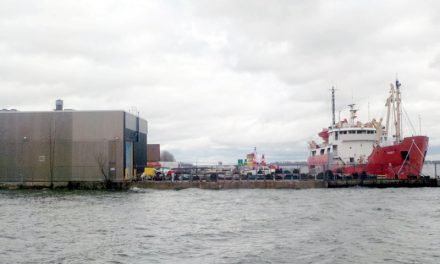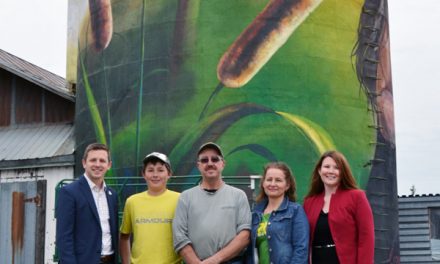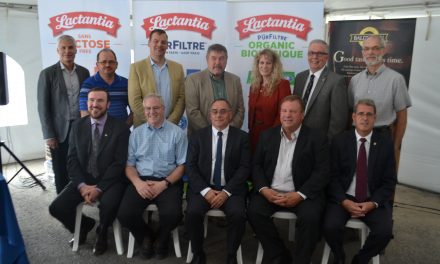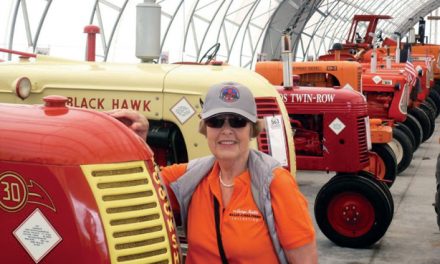by Candice Vetter
AgriNews Staff Writer
KINGSTON – The long campaign to save the prison farm program at federal institutions has hit a new snag. The federal Liberal government recently announced it would invest $4.3-million over five years to re-open penitentiary farms at Joyceville and Collins Bay Institutions.
After a wait of nearly a decade, advocates for the prison farms quickly celebrated, but then were shocked to discover that the return of the farms does not mean return of the dairy herds.
In 2010, after the previous Conservative government closed Canada’s prison farms, advocates purchased the farms’ dairy cows and quota, with the intention of selling them back if and when the program was reinstated.
In 2016, the Liberal government conducted a feasibility study of the benefits of the prison farm program and held a town hall meeting in Kingston with Minister of Public Safety Ralph Goodale attending. In the spring of 2017, Goodale appointed the seven-member citizens advisory panel, including Dianne Dowling and two other National Farmers’ Union members, for the prison farms. The panel advised CORCAN and CSC staff on a proposal for restoration of the prison farms that was submitted to the Minister last fall.
But at a meeting of the prison farm advisory panel on March 7, the advocates were told by Alain Tousignant, acting Senior Deputy Commissioner for the Correctional Service of Canada that the new plan was to have a dairy goat operation at Joyceville and to have land management, crops and horticulture at Collins Bay and at Joyceville.
“We talked later that day with Michael Milech, a policy advisor in Minister Goodale’s office,” said Dowling, who is one of the leaders in prison farm advocacy, “who said that, ‘logistically, it would be easier to start with goats.’”
There was no explanation of how starting a brand-new goat herd would be easier than bringing back an existing dairy cow herd.
Later that day Dowling emailed supporters saying there was good news and bad news. “At the prison farm advisory panel meeting today, CSC staff shared some details of the prison farm re-opening. The plan includes a dairy goat farm at Joyceville, and land management, crops and horticulture at both Collins Bay and Joyceville. Dairy cows were not in the plan presented to the panel today. This news shocked panel members, as I am sure it shocks you. Returning the cows to the prison farm has always been a central objective in our campaign. We have been shocked and heartbroken and angry before, but we persisted in our campaign to save the prison farms. We will persist again, to advocate for an early return of the cows…Remember the good news – the farms are being restored. There will be farm programs for inmates to learn employment skills, and for the therapy and rehabilitation they provide. Prison farm programming will help prepare inmates for a positive release into the community. Please continue to write, email or phone MPs, including Prime Minister Trudeau, Minister Goodale, and Mark Holland, Parliamentary Secretary to the Minister of Public Safety. Please communicate your response to the plan for the prison farms politely and firmly.”
Prison farm supporters met with Goodale by conference call on March 15. In an email to supporters Dowling reported on the meeting, saying, “Minister Goodale said that re-opening the prison farms at Kingston is a pilot project, and if successful, could lead to re-opening prison farms elsewhere. He told us the program has to fulfill three needs – staying within the budget of $4.3-million over five years, being implemented in a timely fashion, and demonstrating clear evidence of its value as a rehabilitation and training program. He said the prison farm plan is ‘open to modification,’ within the limits of the money budgeted, and with the expectation that the program would be implemented as soon as possible so that it can demonstrate its value. He asked the panel for a side-by-side comparison of a dairy cow operation vs. a dairy goat operation, including costs and timelines, to be presented to him by mid-April.”
So there is more work for the prison farm supporters, who have already invested extensive time and resources. For 18 months, from the spring of 2009 to August 2010, hundreds of Kingston and Eastern Ontario people campaigned to save the program, citing its benefits to inmates and to the community.
“People of all political leanings told us closing the prison farms didn’t make any sense,” said Dowling. “Some people liked the idea that inmates were contributing food to the prison system. Others saw it as good employment training, or as a rehabilitation program, particularly through working with animals.” The farms also reduce the chances of prisoners re-offending after release.
“NFU members in the Kingston area have been working for several years to help build awareness of food and farm issues,” Dowling said in a NFU release. “When the news broke that the government planned to close the prison farms, people paid attention – farmers and non-farmers, alike. “Between the two institutions there are about 1,500 acres of farmland, in public hands. People asked, ‘What will happen to that farmland if the program is closed?’ People said, ‘That land could be a major source of food for our region.’ And they came out to demonstrations, public meetings and hearings, and they wrote hundreds of letters, made phone calls and signed petitions.”
The full budget text says the farms are being re-established “to provide federal inmates with training opportunities to acquire new skills, while preparing for employment and successful reintegration and rehabilitation into the community.” Hopefully cows will soon be part of that project.












